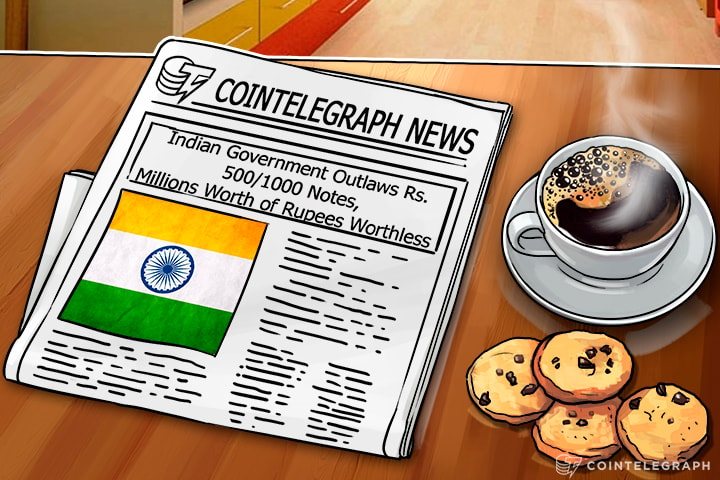In a shock move, the Government of India has demonetized Rs. 500 and Rs 1000 banknotes. In India these are considered higher denomination banknotes, with the banknotes becoming obsolete starting from midnight on Nov. 9.
The government has also announced the introduction of two new banknotes, Rs. 500 and Rs. 2000, to replace the demonetised money.
Targeting so called ‘Black Money’
The government of India has taken this measure to effectively target people who conduct transactions primarily in cash and bypass the tax net. There is a belief within the government that most of this so called ‘black money’ is stashed in higher denomination 500 and 1000 rupees notes.
How effective this policy, of scrapping existing legal tender for new one, would be is debatable. The opposition Congress Party spokesman was reported by the Times of India as saying:
“On one hand Modiji is saying middle class people use notes of Rs 10 to Rs 100. So they will not be affected. Then why are you issuing new notes of Rs 2,000?”
ATMs to be shut down
While the government has essentially made the money in the pockets of the people of India worthless, there is more hardship to come as they have also announced that ATMs would be shut down on Nov. 9 and 10.
Banks will also be closed to the public on Nov. 9. The Prime Minister also said that there will be a limit of Rs. 2000 per ATM card in the coming days for cash withdrawals. This will come as a shock to many as India is largely a cash only economy.
Total chaos unleashed
The immediate effect of the demonetization of Rs. 500 and Rs. 1000 denomination banknotes has been absolute chaos, with ATMs beginning to run out of smaller denomination cash.
In India, customers are allowed only five free transactions per month, and since people are making more transactions to withdraw Rs. 100 bank notes, the banks are likely to make a killing in ATM fees.
Huge queues are also being witnessed outside of gasoline pumps, as Indians queue up to fill their cars due to uncertainty. Some relief has been announced by the government as hospitals and trains, as well as plane ticketing windows, have been instructed to accept the old money.
Fifty Days to exchange money
The government is giving the people of India up to 50 days to exchange old series bank notes with new ones, and are free to change this money at banks and post offices between Nov. 10 and 30.
The Prime Minister of India Narendra Modi, made a televised announcement around dinnertime. After his speech, the Reserve Bank of India Governor Urjit Patel also addressed the media.
The Indian newspaper Hindustan Times reports:
“Those unable to submit all their old currency notes within the deadline, will be able to do so at the Reserve Bank of India up till March 31, 2017 by providing a declaration.”
Use government money and you are at government mercy
What India has effectively demonstrated is that if you are addicted to using government tender, then overnight your money can be worth nothing.
This move by India should be closely watched by people around the world and it would be interesting to see how chaotic the next days are in one of the largest markets and most populous countries in the world.


